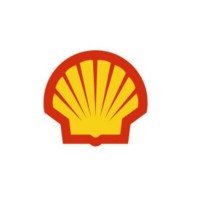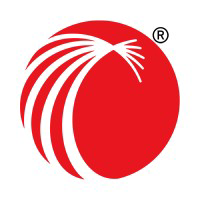Job Family Group:
Worker Type:
Posting Start Date:
Business unit:
Experience Level:
Job Description:
The Freight Market Risk Analyst is responsible for understanding the positions and strategies employed by the Products Freight trading business of Shell Trading and Supply, as well as identifying and analysing freight exposures within the physical oil trading books. He or She will be responsible for developing the means for incorporating market risk from freight into the overall T&S risk metric landscape and creating visibility through meaningful reporting.
The purpose of the role is to independently identify, measure, and report on the level of risk from new business proposals, material contracts, and trading market conditions in order to advise the commercial teams on mitigation strategies and risk appetite. The role will provide risk assessments and insights to senior management, while collaborating with and providing market specific information and advice to others in the global Finance and Risk Management organization. This includes the Valuation, Quantitative Analytics, Risk Management Operations, and Technical Accounting teams among others. The Freight Market Risk Team will provide an independent view as to whether the organization is receiving appropriate compensation for the risk they are taking.
The role works closely with risk leads for all parts of the risk management spectrum including a significant Business Operations component, regular discussions with Front Office, Commercial Operations, Finance, Compliance and Back Office, and a focal point for freight risk related queries from across the Shell group.
Job Description
- Prior relevant experience in oil commodity market risk and associated freight markets.
- Develop and apply fair economic value principles across the Freight trading business, coordinating across the global risk managers to ensure consistent application.
- Lead the product freight risk management transformation project, which will move the trading desk’s scorecard from accrual accounting to mark-to-market accounting.
- Model all market exposure, both physical and paper positions, including all non-linear exposure.
- Ensure that all exposures generated are fully understood and that these exposures and resultant P&L are properly evaluated, validated and analysed prior to any income being reported. Freight exposure can be explained in different ways, so it is key to be able to translate from one to the other.
- Understanding the different exposure-generating positions.
- Improve Management Information reporting for the Freight business so that Gross Margins and exposure is clearly explained and underlying drivers are understood.
- Provide independent advice and guidance on the level of risk/return in the business and whether this is congruent with the agreed level of risk appetite.
- Identify risks, look at model and portfolio assumptions, market inputs, pricing issues, valuation parameters and instrument types.
- Produce ad-hoc analysis to explain Gross Margin or exposure changes to Front Office, assist them with queries and requests for system setup changes.
- Provide analysis, review and comments on New Business Proposals. Provide peer review and challenge deal proposals for other businesses. Ensure that the systems and support functions are ready for when trading commences.
- Work on New Business Proposals for the physical oil trading desks that generate significant freight exposures to ensure that the risk from these exposures is well understood.
- Model the embedded physical optionality of the time-chartered vessels
- Create stress-tests to the modelled portfolio, including the non-linear market exposure
- Quantify the short freight exposure in the physical oil trading books and then compare this to the vessel length in the Freight trading books.
- Assist in limit setting & monitoring of the Products Freight business but equally play a key role in limit setting globally across the Trading and Supply business for freight as necessary. Ensure that all trading activities remain within mandated limits and escalate appropriately if they are exceeded.
- Actively manage resources & processes to optimise the efficient analysis of risk across the portfolio, manage change and prioritise accordingly.
- Promote a culture of continuous improvement across all levels of the organization by having courage to challenge established processes. This includes identifying inefficiencies in local and global operations and opportunities to streamline and automate shared processes and interfaces.
- Support digitalization and automation to smooth the flow of information across the business and to remove manual tasks. Currently much of the Freight reporting is manual so is a key area for improvement.
- Roll out VaR and other risk metrics across the freight business.
- Ensure that the results are comparable to the oil and energy trading desks.
- Ensure that Market Risk fulfils its role as an independent “check and balance” function and is viewed as such by other parts of the organization.
- Implement Shell best practices in commodity trading risk management.
- Produce content for and participate in the quarterly Risk Committee meetings with Senior Leadership. PowerPoint skills to produce presentations for Executive level presentations.
-
DISCLAIMER:



